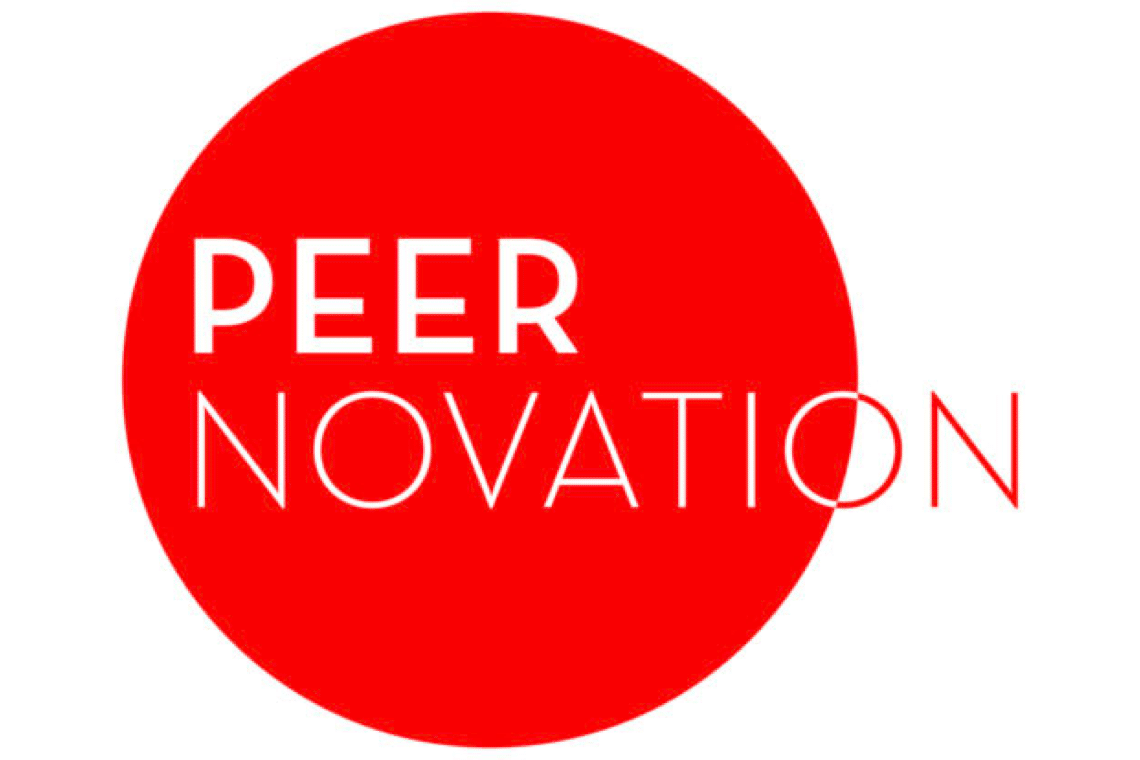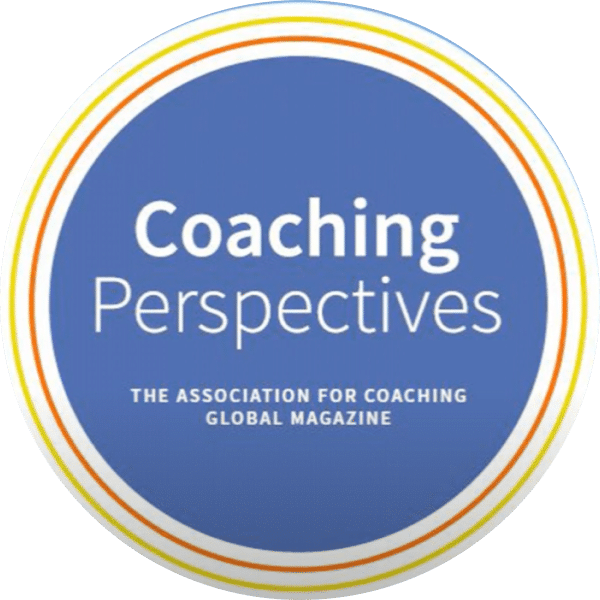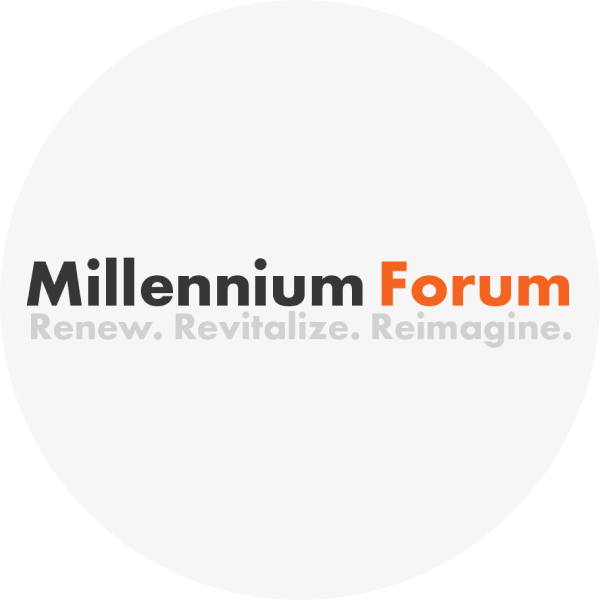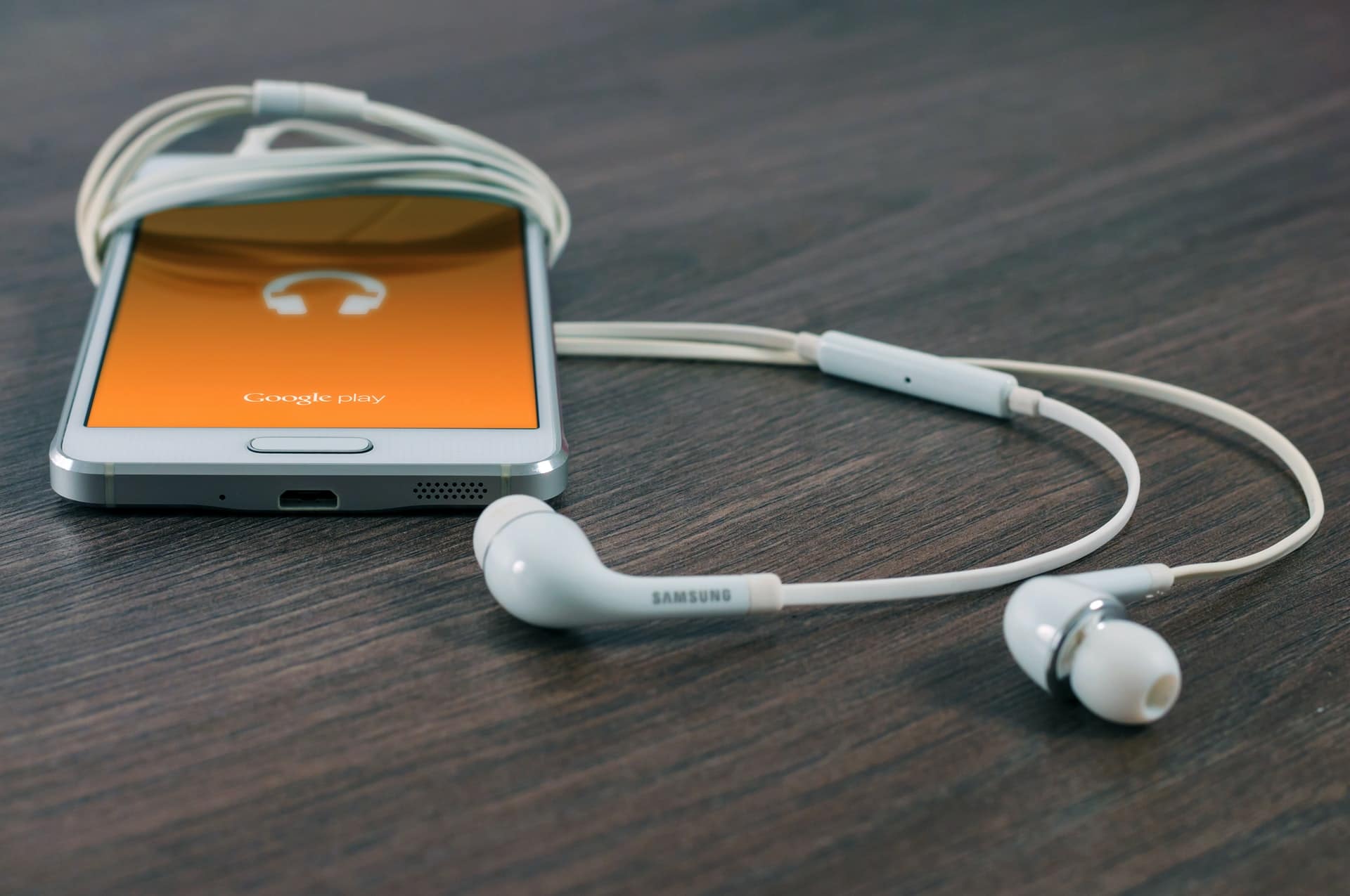Leo Bottary and Randy Cantrell talk to our CEO Dan Hoffman on their podcast, Peernovation.
Category: Circles In The News
Leader as coach with Dan Hoffman
Coaching Perspectives
Sue Stockdale talks to Dan Hoffman, CEO & Founder of Circl.es. They discuss different ways that leaders can empower and coach their people and the benefits of using this type of approach.
Case Study Results: Millennium Forum
Do Circles work?
Hard data is hard to get. And then there’s the question: What outcomes are we looking for?
We’re proud of our partner, Millennium Forum. They run an amazing Circles program for K-12 teachers. Their research partners and team have helped them design ways to measure and learn from outcomes.
First, some context…
In general, we talk about three categories of outcomes:
• Educational. Circles make it easier to sustain and apply learning, extending programs like manager training.
• Social. Participants get close. They help and support each other in ways that transcend any particular topics.
• Cultural. A circles experience shifts you to be more inclusive, vulnerable, and accountable. Diversity becomes a strength.
Each Circles program and partner emphasizes different outcomes. Millennium’s “Theory of Change” focuses on the second and third categories. By taking care of each other, educators will take better care of their classrooms.
Their latest mid-year results show real success:
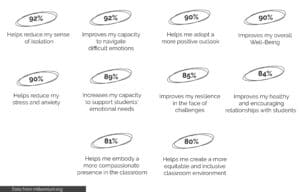
What about you?
Do you suspect similar outcomes from your Circles programs, only haven’t measured them? Are these high scores for helping teachers help students analogous to helping managers help employees?
We’re A Trend To Ride In 2017
 The best tech initiatives this year have served as an aid, helping enhance our lives rather than distracting us from them. We’ve seen VR that helps the visually impaired see, a new form of renewable energy harnessing the ocean’s waves, incredible lifelike prosthetics.
The best tech initiatives this year have served as an aid, helping enhance our lives rather than distracting us from them. We’ve seen VR that helps the visually impaired see, a new form of renewable energy harnessing the ocean’s waves, incredible lifelike prosthetics.
These all serve as a welcome contrast to smartphone addiction. It’s a modern cliché that we’re more connected than ever, and yet, we feel increasingly isolated. But it rings true.
So we’re happy to say that Circles
“Instead of going it alone, make this the year you try a self-directed learning group like Circles.”
Written by Verne Harnish, one of Circles’ advisors and founder of the Entrepreneur’s Organization, the piece focuses on initiatives that will help grow a business. As Verne puts it, “your business and career will benefit if you strategically pursue the smartest of today’s ideas”.
Here’s the Circles mention in full:
“Most of us absorb far more when seated in a circle of peers who are studying the same thing than from the rows of a traditional classroom or while poring over an online course on our laptops. Instead of going it alone, make this the year you try a self-directed learning group like Circles (at circl.es). It brings together small gatherings of people who want to learn the same thing in private videochat rooms—taking the best features of book clubs into the digital era.”
If you want to find out more about joining Circles, you can read more here. Or apply to join. We learn better in Circles than in rows.
Dan on The Year of the Peer Podcast

“It’s almost like there wasn’t really a language around peer groups, there wasn’t a narrative for it, they didn’t know really what it was or how to access it.”
Circles considers Leo Bottary one of our “comrades in arms.” His 2016 book, co-authored with the then CEO of Vistage, offers best practices for harnessing “The Power of Peers.” He declared 2017 “The Year of the Peer” and has been travelling the Globe and recording interviews with leaders who tell their stories about the peer teams that helped them succeed.
Recently, Leo interviewed Circles CEO Dan Hoffman via video conference for an episode of his Year of the Peer podcast. Their conversation went into depth on their shared mission, how to make people present in team meetings, being deliberate about peer support and how they both want to spread the word on peer groups and make them accessible all over the world.
Click here to have a listen to the podcast or watch the video over at leobottary.com.
Below are some of the main points.
How Dan was drawn to the idea of peer groups
“We learn better in circles than we do in rows. When I reflected on my own learning journey I thought about all of the coaches and the consultants and the courses that I had subscribed to and got help from as I learned to be a CEO. My peer group though, and I very fortunately had a YPO peer group for most of that time, was one of the most impactful and most important.”
“The thing that I loved more than anything in .. building a business was the learning journey, both my own, and also creating a culture of learning at work. I set off to start studying learning, working on learning and development, as well as chasing that feeling, and that led to the project at Circles.”
How Leo makes the most out of everyone’s experience
“What I’ve found, and I’ve said many times, when I started not only being a student but also an instructor in graduate school, is that we’ve got all of these these very experienced people in the room. It was really different from the learning experience growing up where you have somebody at the front of the class and they’re just talking at the students … here you’ve got all this intellectual capital in the room and in my view as an instructor, if I’m doing my job well, I’m going try to create the environment where they learn the most from one another, second from the material, and whatever I can add, great.”
Dan’s mission for Circles
“Our mission is to make it easy for people to connect deeply, learn and grow together.”
“Part of my mission has [also] been to take that feeling, that fire that does exist, for about a hundred thousand CEO’s across Vistage, EO, YPO and some of the other groups, and ask the question, why doesn’t everyone in the world have this? Why can’t this circle idea be a structure that really helps people of all walks of life learn together and move forward in their lives?”
How process drives presence
“Everyone’s face is in a circle, and you’re in the middle when the focus is on you. There’s nowhere to hide. You know you’re gonna get called on and it’s producing a very different video meeting experience from what people are used to. There is no multitasking and there’s a focus on being present.”
“Process and the right mix of ingredients for the right case does produce this experience of a deep and safe space and opening up that’s very powerful, and it produces it fairly consistently.”
Why Leo wrote The Power of Peers
“One of the reasons for writing the power of peers, which was published back in 2016, was this idea of how is something that works so unbelievably well for so many people used by so few, when you really look at the broad landscape of it, whether it’s CEOs or business leaders at all different levels.”
“We conducted a number of focus groups where we asked people what the ways they might think about learning. They’d name fifty things -books, executive development programs, go to business school- before they ever got to ‘oh, join a peer group!’ It’s almost like there wasn’t really a language around it, there wasn’t a narrative for it, they didn’t know really what it was or how to access it. It’s so not top of mind.”
Simply by turning up, Dan and Leo are a testament to the power of peer groups. They bonded over their shared passion for peer groups, and here they are, keeping the community alive and helping each other as peers. Thankfully, they did more than just turn up and are spreading the word on how learning with a community trumps going it alone in business and in life.
Leo’s Year of the Peer Podcast and Circles share a common goal; converting non-believers to the power of peers. As Leo remarked, “my hope is that with more conversations like the one we’re having now, people will seek out how to have more circles and how to make sure that the circle they have is the right one for them for helping them in their lives and allowing them to help others.
